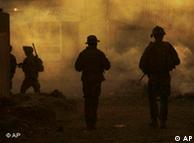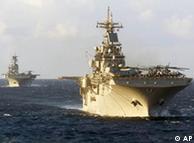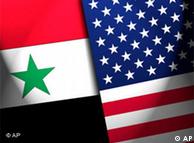By M K Bhadrakumar
June 24, 2011
Courtesy Of "Asia Times Online"
United States President Barack Obama never fails to rise to the occasion when rhetorical flourish is the need of the hour. By that yardstick, the drawdown speech on Wednesday in Washington that he thoughtfully titled "On the Way Forward in Afghanistan", has been more a programmatic speech than intended to stir up the mind. His judgment is correct that the occasion is not one of celebration but of justification for what is to be done about something that went horribly wrong.
There are winners and losers in Obama's speech. The losers, first. They are the Pentagon, Afghan President Hamid Karzai, Pakistan and South Asia and the amorphous creature known as al-Qaeda. The winners are the Taliban and, once again, Pakistan.
The shift from "combat to support" and from the military track to the political track is the reflection of growing skepticism about the purposiveness of the troop "surge". Obama thanked the soldiers for a good job done, but that was more perfunctory. He claimed the "surge" to be a success and then he moved on. He didn't praise the "surge" - the 33,000 troops he ordered to Afghanistan in late 2009 - as an outstanding success. He was sombre. He thanked the foot soldiers who had laid down their lives in supreme sacrifice, but he failed to mention the hero of the "surge" - General David Petraeus, the US's commander in Afghanistan and now nominated by Obama to become the new director of the Central Intelligence Agency.
From all accounts, this is not the kind of drawdown the Pentagon would have wanted - 10,000 troops by end-2011, 33,000 by mid-2012 and the withdrawal of the remaining 70,000 troops at a "steady pace" through 2013 so that by end-2014 "this process of transition will be complete". Obama left it open whether all 70,000 would be withdrawn by end-2014 or whether, as in Iraq, where 10,000 troops may stay back even after the complete withdrawal promised by end-2011, there will be an American residue on a long-term left in the Hindu Kush mountains.
Conceivably, Obama left it vague since the issue isn't completely for him to decide. He would know that the time is long past for the US to dictate the aftermath of the bloody 10-year war. When you fail to win a war, the aftermath has to be decided by consensus. So, first and foremost, the Taliban will have a say, and then Karzai's government and, increasingly, regional powers too.
Besides, Obama admits that America has limitations. Money can be better spent at home for road-repair, for creating new jobs and industry "at a time of rising debt and hard economic times at home". America is not going to withdraw into an isolationist mood, but it won't have enthusiasm for interventions abroad unless it is threatened. And even if threatened, the choice will be not to deploy large armies abroad (rather through high-tech weapons) and to rally international action.
Obama asserted that al-Qaeda was a spent force and there was no reason to wage a war anymore. Vigilance is what is called for so that the serpent doesn't rear its head again. But he gave a warning to Pakistan that he still intended to "address terrorist safe-havens" in that country. He added that he would "continue to press Pakistan to expand its participation ... work with the Pakistani government ... and will insist that it keep its commitments".
Obama didn't bother to offer any olive branches to Islamabad, make any form of overtures to mend the fractured US-Pakistan relationship, leave alone to even momentarily take note of Pakistan's claims of the enormous sacrifices it has made - more so than any of the US's allies.
Put plainly, he is moving on without a "thank you" note. This is going to be noted by the Pakistani military command in Rawalpindi and the civilian leadership in Islamabad. What consequences might follow lie in the womb of time. Curiously, Obama's choice also gives a window of opportunity to the Pakistani side to cherry pick.
On the other hand, Pakistan is also a big winner. Obama's speech is, quintessentially, a vindication of all that the Pakistani military has been demanding for the past year or two - that the Afghan war is futile, that it is time to reconcile the Taliban, that the military track is a road to nowhere, that enduring peace and stability can only be reached through a peace settlement.
Now from the pinnacle of power in the US comes the word, indirectly though, that "yes, Pakistan said the right thing all along". Obama duly acknowledges in his speech that the "tide of war is receding" in Afghanistan. Obama speaks of the prospect of a political settlement with optimism, although "there will be dark days ahead".
The nuances of the road to peace in Obama's speech will merit maximum attention as that is where the meat lies for the coming days. He speaks of the Taliban as a whole without segregating the Haqqani network. As long as the preconditions of reconciliation can be met, just about all are welcome to walk into the peace tent. The mood is of "forget-and-forgive". The Taliban have been noted as part of the "Afghan people".
Two, Obama admits that the reconciliation must be "Afghan-led". He echoes the standard US position but says nothing more by way of addressing the palpable fears in Kabul and Islamabad which regard this as mere lip-service, whereas the US insists on being the locomotive and keeps its Afghan and regional ally in the dark. Maybe, this is a minor detail.
Or, maybe, there is nothing Obama can do about the situation because when the camel enters the tent, it invariably becomes the case that the tent has little space left for others. But Kabul and Islamabad are sure to be left wondering until US envoys come to the region to annotate Obama's speech, as to whether anything has changed in the US's lone-ranger diplomatic strategy toward the peace process.
The most interesting point in the entire speech is the optimism Obama exuded with regard to the reconciliation of the Taliban. He says he has "reason to believe that progress can be made ... the goal that we seek is achievable". But then, he tantalizingly leaves it at that. The conclusion needs to be drawn that Obama is quietly pleased with the feedback he has received from US officials' secret confabulations so far and he has reason to believe that the Taliban are amenable to persuasion and will be willing to deal.
Obama fails to mention Karzai in this context of the peace process, which is a deafening silence. True, he takes note of the Afghan government's key role in stabilizing the ground situation, but his emphasis is unmistakably on America's tryst with the Afghan people at large.
Equally, Obama says nothing about the conference that the Germans are ambitiously planning to hold in December in Berlin in the mould of a Congress of Vienna where the Taliban would apparently sit around the table under the chandeliers with diplomats in pin-stripe suits sipping champagne. But Obama does speak of another international conference, but that will be restricted to the US and its allies and will be held in May in his "hometown" Chicago "to shape the next phase of this [Afghan] transition".
Obama is a gifted politician and can visualize the immense potential of displaying before the American public just ahead of the presidential elections in the US how brilliantly he salvaged the Afghan war, which the previous Republican government had left in a mess.
Obama can count on the newly-elected Chicago mayor and old chum Emmanuel Rahm to do a splendid job in making the May conference a defining moment of the election campaign. Actually, Obama doesn't miss out in his speech on the follies of the previous George W Bush administration in not paying enough attention to the Afghan war and thoughtlessly launching the Iraq invasion in 2003.
Arguably, it is Obama's right to make political mileage at home from the conclusion of the Afghan war. (The peak of the drawdown - mid-2012 - also coincides with the peak of the election campaign.) After all, it takes superhuman courage for a commander-in-chief to realize that a war cannot be won. It is even more difficult to make sure that the retreat doesn't look like a defeat or having to be made from the top of the US Embassy building in Kabul in helicopters. Obama is successfully achieving both.
The Taliban have won the war. No quibbling over this plain truth. Keeping them out of the Afghan power calculation is no longer the American objective. The US recognizes that the Taliban are an integral part of the Afghan nation. No section of the Taliban will be excluded from mainstream Afghan life out of American pride or prejudice. All are welcome to board the peace train to Kabul.
The region surrounding Afghanistan will be aghast, wondering what the war was all about it. A lot of debris is lying around, thanks to the destruction the US has caused. Obama pleads American has no money for reconstruction. "America, it is time to focus on nation-building here at home." Those dozen words will be echoing not only in the valleys and mountain tops of Afghanistan, but all through the Central Asian steppes and the ancient Indus Valley.
The stark reality is that Obama's speech will send shivers of fear down the spine of the non-Pashtuns in Afghanistan. There is nothing worse than offering someone protection and support and then walking way at the heat of the moment. Central Asians will worry how the triumphal return of the Taliban will play out among the forces of Islamism in their countries, which are already bracing for the arrival of the Arab Spring.
India will feel badly let down. Iran will be pleased to no end. So may Russia to the extent that history will record that it wasn't the only superpower that failed to win a war in the Hindu Kush. China's dependence on Pakistan increases by leaps and bounds to ensure that the Taliban keep their word that they have no agenda beyond Afghanistan's borders.
How the unpalatable truth sinks in will be Pakistan's formidable challenge. Like the witches told Banquo in William Shakespeare's play Macbeth, it is a mixed blessing. He may be about to lose his own life, but his progenies will live in regal glory - "Thou shalt get kings, though thou be none." Can there be a greater satisfaction?
Ambassador M K Bhadrakumar was a career diplomat in the Indian Foreign Service. His assignments included the Soviet Union, South Korea, Sri Lanka, Germany, Afghanistan, Pakistan, Uzbekistan, Kuwait and Turkey.
(Copyright 2011 Asia Times Online (Holdings) Ltd. All rights reserved.)












